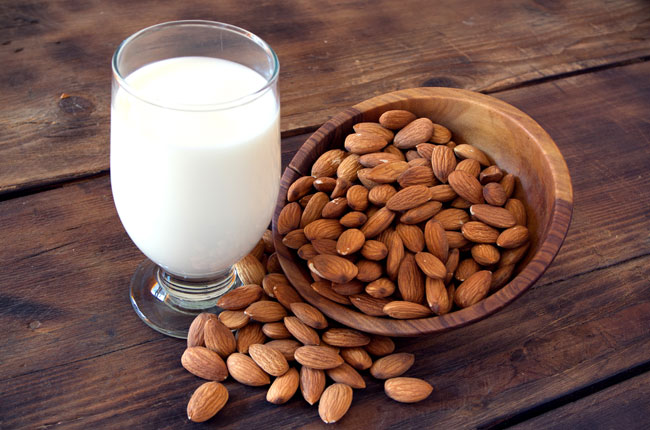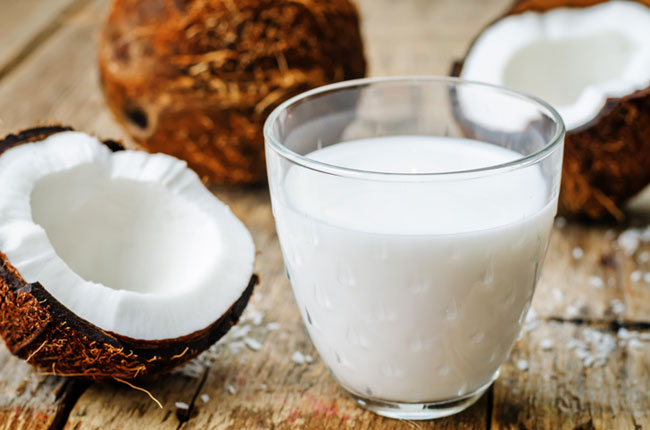They say humans are the only animals that drink the milk of another mammal, which is why many would argue against any milk from an animal and others who are suffering from dairy related issues choose to opt out. Yet on the other hand, since birth we are told milk (specifically cow milk) is essential as a source of all the vitamins and calcium. But with the rise of numerous milk-related issues, such as of lactose intolerance, allergies, severe acne, diabetes, constipation and even a risk of cancers, many people are opting for alternatives.
So, what are these alternatives? In the recent years, there has been an increase in non-animal derived milk that has allowed shoppers an array of options in their local grocery stores. So, we’ve gathered up an easy list for you to get the run down on what these animal free milk drinks are, where they come from, and are they a healthier match for our traditional milk options?
1. Soy Milk
Soy milk is the number one go to alternative for non-dairy drinkers and vegans. It is possibly the most marketable milk out there too. Though there’s some benefits to this popular alternative, critics have some serious arguments against it too.
Where does it come from? Bean extract from soy.
Advantages: Nutrient-wise, soy milk is actually very similar to cow’s milk. This drink is vitamin packed! One cup has 299-milligram worth of calcium necessary for your daily intake, and 14-15 percent of your daily iron intake. It also has vitamins A, D, and riboflavin. Not to mention it can reduce the risk of heart disease.
Disadvantages: Critics claim that Soy milk is filled with chemicals and hormones that should not be consumed. A lot of the chemicals raise estrogen and may result in health risks especially for breast cancer patients. Soy milk typically has a boosted sugar content too so choose unsweetened if you do.
2. Almond Milk

The nutty alternative is also becoming increasingly popular among non-dairy drinkers. It provides a lot of nutrients just not as much as regular milk would.
Where does it come from? From the grounds of almonds and water.
Advantages: Almond milk has no saturated fats or cholesterol, is lactose free, and great if you’re trying to lose weight! One cup of almond milk has 60 calories versus the 176 in regular milk.
Disadvantages: Doesn’t have has much protein, and lacks in other essential vitamins that would be present in Soy milk. Many of the nutrients and antioxidants are stripped away during the straining process to create the milk itself.
3. Coconut Milk

This rich, creamy milk is the most similar in substance to cow’s milk. It has a natural sweetness and aroma adored by many.
Where does it come from? Blend of coconut meat
Advantages: Coconut milk will reduce your cholesterol, relieve blood pressure, and is entirely free of nuts, lactose, and dairy. It also helps with digestion, dehydration, and constipation.
Disadvantages: Its important to keep in mind the incredibly high caloric intake of Coconut milk. If not rationed, may result in gaining weight rather than maintaining weight. It also lacks many vitamins found in dairy milk, including less calcium and protein.
4. Rice Milk
Generally sweeter than dairy milk, rice milk contains no animal or animal by products, so very popular among vegans. Also, a popular alternative for people allergic to soy.
Where does it come from? Boiled rice, starch, and syrup.
Advantages: Safe for individuals with lactose intolerance and good for weight loss. It is also the least likely to cause allergies for allergy prone individuals. Also provides supplements of vitamin A and D.
Disadvantages: Contains more carbohydrates than cow’s milk and very much lacks in protein and calcium that would be found in cow’s milk. Much of the Rice Milk found on shelves are transfused with calcium and other vitamins.
With just these few alternative choices, each can deliver a different type of need. Whether you are trying to lose weight, suppress allergies, eat healthy, or just try something new, it’s good to know about an array of options suitable for your need. Although we’re still not sure if any matches cow milk, yet.